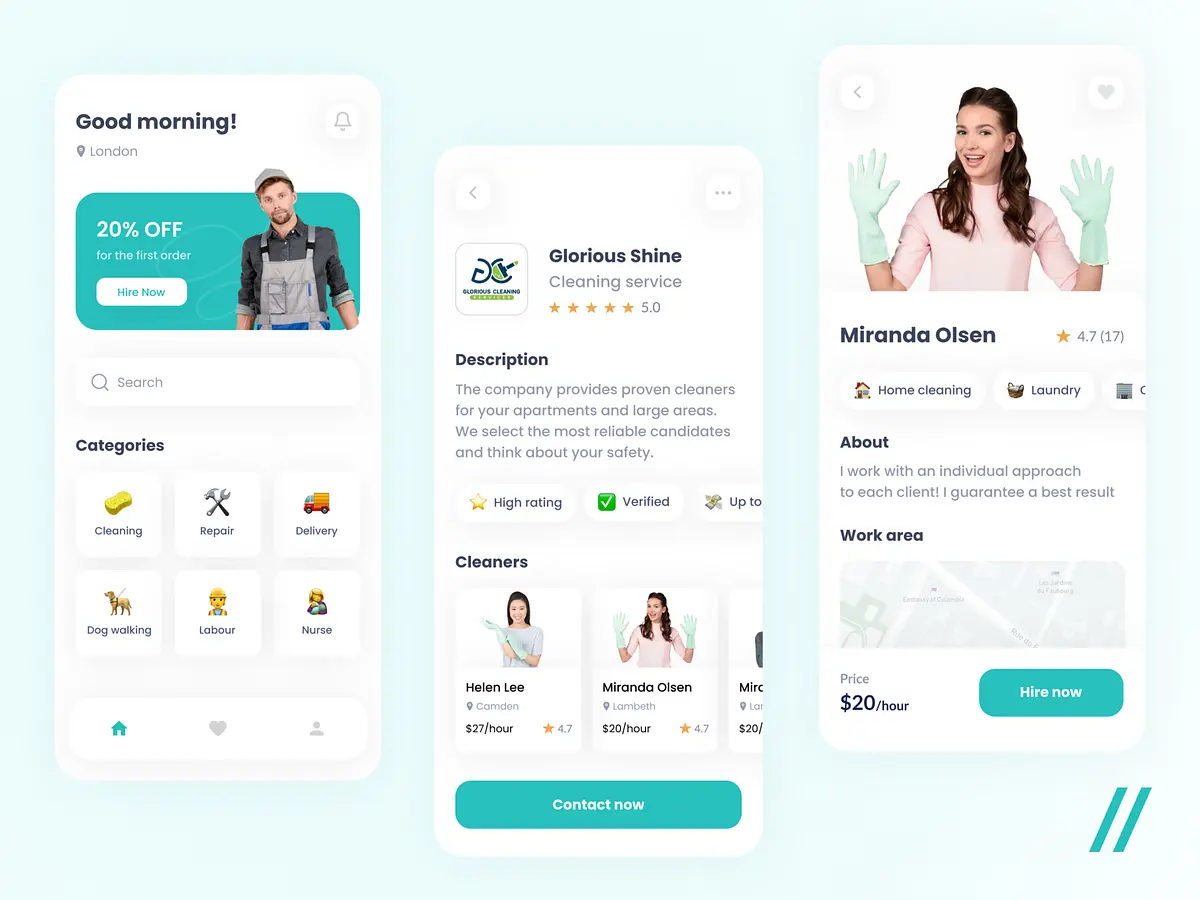Best Mobile Enterprise Application Platforms for 2024


In today’s dynamic business landscape, the prevalence of mobile devices compared with website usage is undeniable. Recent statistics reveal that mobile internet usage has surpassed desktop usage, with mobile devices accounting for more than 50% of global web traffic. Businesses leverage the potential of mobile enterprise application platforms to enhance their operations, engage with customers, and drive growth. This article introduces one of the best platforms for 2024.
A mobile application platform is a sophisticated software framework or development environment that enables the creation, deployment, and management of mobile applications. It provides developers with the tools, libraries, and services to streamline the app development process, allowing businesses to efficiently build cross-platform or native mobile apps for iOS and Android. These platforms ensure seamless functionality and optimal user experiences, empowering enterprises to enter the mobile market and deliver high-quality mobile applications.
Furthermore, a mobile application platform supports development using various tools and provides an application programming interface (API) for interactive communication between software packages. It offers functionalities such as testing applications, measuring mobile analytics, and creating interfaces for profiling application performance. By adopting a platform approach, businesses can leverage comprehensive tool suites accessible to developers and other users, enabling a streamlined and efficient mobile application development process.
See more mobile application-related articles:
How to outsource mobile app development?
10 Types Testing of Mobile Applications and Key Differences from Web Testing
In this section, we’ll focus on 07 Mobile Enterprise Application Platforms that you should consider as a starting point for your assessment.

Flutter
Flutter, a powerful and versatile mobile application development framework, will continue to gain popularity in 2023. The Flutter platform, backed by Google, empowers developers to swiftly and economically build iOS and Android applications using a single codebase. With its exceptional performance and customizable UI, Flutter enables enterprises to create visually stunning and high-performing mobile applications.

Xamarin
As a mature and robust platform, Xamarin empowers developers to create native applications for diverse platforms using a shared C# codebase. With its comprehensive development environment and seamless integration with Visual Studio, Xamarin contributes to rapid app development and easy maintenance. This platform is well-suited for enterprises creating cross-platform applications with native performance.

React
Known for its efficiency and flexibility, React Native provides a JavaScript framework for building native mobile applications. Developed by Facebook, React Native allows developers to reuse code across different platforms, saving time and effort. With its extensive library of pre-built components, React Native facilitates the creation of visually appealing and highly interactive applications.

Ionic
The Ionic framework’s popularity as an open-source solution stems from its reputation for being user-friendly and straightforward to use. Built on AngularJS and Apache Cordova, Ionic enables developers to build hybrid applications using web technologies like HTML, CSS, and JavaScript. With its rich UI components and tools, Ionic empowers enterprises to develop feature-rich mobile applications that run seamlessly across various platforms.

Sencha
Sencha’s expertly crafted tools and frameworks are essential for computer specialists in enterprise application development. With Sencha Ext JS, developers can create data-intensive and cross-platform applications using JavaScript and HTML5. Sencha’s powerful visual app builder and pre-built components simplify the development process, allowing enterprises to deliver robust applications quickly.

Mendix
Mendix, a low-code development platform, enables businesses to build, integrate, and deploy enterprise-grade applications with minimal coding efforts. With its visual modeling capabilities and pre-built templates, Mendix accelerates the development process, making it an ideal choice for enterprises looking for rapid app delivery and scalability.

Apache Cordova
Developers can create exceptional mobile applications with the help of Apache Cordova, an open-source platform. It’s an unparalleled mobile application development framework that ensures seamless performance and user satisfaction. With its extensive plugin ecosystem, Cordova provides access to devised features and capabilities, enabling enterprises to create feature-rich applications. Cordova is an excellent choice for enterprises aiming to leverage their existing web development skills for mobile app development.
Drawing insights from industry experts and authoritative sources, we will help you make an informed decision that maximizes your app development potential.
| Evaluate Scalability and Performance | When choosing a mobile enterprise application platform, scalability and performance are critical factors. Media that can handle increasing user loads support rapid data processing and ensure smooth performance across various devices and operating systems are highly desirable. |
| Assess Cross-Platform Capabilities | Developing applications that run seamlessly on multiple platforms is essential in today’s mobile landscape. Look for mobile enterprise application platforms offering cross-platform development capabilities, allowing you to leverage a single codebase to build iOS, Android, and other operating systems. This approach can save development time, resources, and maintenance efforts while ensuring consistent user experiences across different devices. |
| Consider Security and Compliance | Enterprise mobile applications often handle sensitive data, making security and compliance paramount. Prioritize platforms that offer robust security features, secure authentication mechanisms, and compliance with industry regulations to ensure user information protection and minimize the risk of data breaches. |
| Examine Developer Productivity | Enhancing developer productivity is crucial for efficient app development. Look for mobile enterprise application platforms that provide comprehensive development tools, intuitive interfaces, and extensive documentation. A forum with a user-friendly development environment, code reusability, and a rich library of pre-built components can significantly streamline development and accelerate time-to-market. |
| Analyze Cost and Licensing | Consider the cost implications of adopting a mobile enterprise application platform. Evaluate the licensing models, pricing structures, and potential additional costs, such as maintenance, support, and future upgrades. Determine whether the platform’s features and capabilities align with your budget and long-term business goals. |
| Research Industry Reputation and Support | When selecting a platform, it’s essential to consider factors such as reputation, community, and customer support. For a well-rounded decision-making process, view both user reviews and expert opinions. Additionally, you should prioritize platforms that offer regular updates and good customer support. |
In summary, the best mobile enterprise application platforms in 2024 offer potent tools, scalability, security, and cross-platform capabilities, empowering businesses to develop high-quality mobile applications. By choosing the right platform and considering the above suggestions, enterprises can leverage mobile technology effectively, engage with customers, and drive growth in today’s mobile-centric business landscape.
TECHVIFY understands the necessity of mobile application platforms and will be your trusted partner to help you choose the right platform for your project.


Table of ContentsI. What is a mobile application platform?II. Best Mobile Enterprise Application Platforms for 20241. Flutter2. Xamarin3. React Native4. Ionic5. Sencha6. Mendix7. Apache CordovaIII. Choosing the right mobile enterprise application platform 2024Conclusion Technological advancements are paving new paths for companies across different sectors, and the logistics industry is no exception. According to a survey by Gartner, 87% of supply chain professionals plan to invest in enhancing the resilience of their platforms. Logistics encompasses a broad and complex array of processes that demand the utmost precision and continuous optimization. Companies can automate and streamline these processes through software product development,…
26 July, 2024

Table of ContentsI. What is a mobile application platform?II. Best Mobile Enterprise Application Platforms for 20241. Flutter2. Xamarin3. React Native4. Ionic5. Sencha6. Mendix7. Apache CordovaIII. Choosing the right mobile enterprise application platform 2024Conclusion The technology sector is advancing at an unprecedented pace, and the HR landscape is evolving right alongside it. To attract top talent, HR professionals and organizations need to stay ahead of emerging technology hiring trends. This year, we are witnessing significant shifts in hiring practices that will redefine our understanding of the future workforce. According to a Microsoft study, the number of technology jobs worldwide is expected…
25 July, 2024

Table of ContentsI. What is a mobile application platform?II. Best Mobile Enterprise Application Platforms for 20241. Flutter2. Xamarin3. React Native4. Ionic5. Sencha6. Mendix7. Apache CordovaIII. Choosing the right mobile enterprise application platform 2024Conclusion Customized software plays a major role in managing various tasks within the telecom industry. It is essential for allocating numbers to subscribers and managing networks through optimized and AI-enabled routing protocols. Additionally, it aids in detecting fraud with intelligent telecom software development solutions and maintaining detailed subscriber profiles, including comprehensive call recording reports. I. A Quick Look into the Telecommunication Industry The telecommunications industry enables the global…
24 July, 2024


Thank you for your interest in TECHVIFY Software.
Speed-up your projects with high skilled software engineers and developers.
By clicking the Submit button, I confirm that I have read and agree to our Privacy Policy